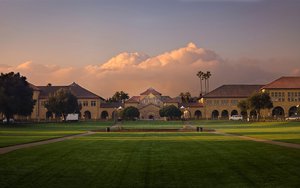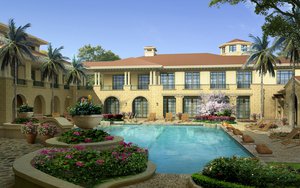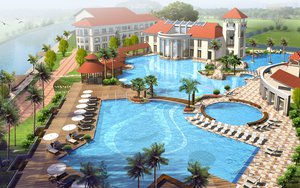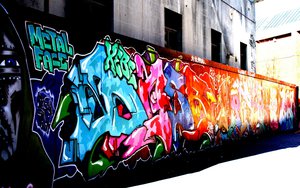AICLU - CfP LLHE dicembre 2019
Ott. 23, 2019
Language Learning in Higher Education
(LLHE)
Journal of CercleS
(European Confederation of Language Centres in Higher Education)
Special Issue
2019-2020
Enhancing the Role of European University Language Centres: past achievements and future perspectives
Call for Papers
The European Confederation of Language Centres in Higher Education - CercleS - is pleased to announce the Call for Papers for a Special Issue of the LLHE Journal, the aim of which is to celebrate the approaching 30th anniversary of CERCLES (1991-2021).
The aim of this LLHE Special Issue is to create an occasion for language scholars, professionals and practitioners to share ideas about research and didactics relating to language development which stems from the input CercleS has created over the years. The Special Issue wants to offer the opportunity for a collaborative debate which will involve the many members of the Associations of Language Centres in Europe who, thanks to their varied working and geographical backgrounds, will inform the community of language professionals about past and present experiences and thus enrich the overall discussion. It is, indeed, CercleS’ wish to embrace a number of different perspectives in order to promote in-depth reflection on issues relating to the well-being of University Language Centres and the development of language competences among the generations of students and the population in general.
Critical thinking is a concept of paramount importance for learners’ global development, both from a cultural and social point of view as well as from a linguistic and multilingual perspective. CercleS strongly believes that it is the duty of language scholars and professionals never to forget the role that languages have in society and the role that University Language Centres play in language acquisition and learning. Moreover, CercleS is aware of the many achievements that, within the European context, have been reached throughout the years and the numerous efforts which have been made in order to shed light on the relevance linguistic issues have within academic contexts and, more broadly, within society. Thus, this LLHE Special Issue wants both to acknowledge the successes of CercleS and also envision future goals.
Articles and activity reports addressing the themes highlighted below would be most welcome. They can be written in English, French, German. The aim is to enhance the multilingual aspect of the issue, which wants to emphasize the wide range of cultures and communication styles that practitioners in University Language Centres come into contact with during their academic life. Experiences will therefore be considered from a European perspective and beyond, thus providing participants with insights that should help reinforce the concept of belonging to a community of practice that crosses geographical boundaries.
Themes have been chosen to include wide areas which have favoured important changes in the fields of Language Centres’ management and organization, language learning and research, language teaching. Such areas foster significant debate on how languages naturally interweave with changes and development in the current world. They are intentionally broad so as to encourage the sharing of a wider range of backgrounds, findings, expertise, ideas and discussions:
University Language Centres within an international perspective
- Language planning and policy in the academic world
- Management, administration and daily life of University Language Centres: strengths, weaknesses, opportunities, threats
- University Language Centres and Internationalization issues
- European projects in higher education
- University Language Centres and Learners’ Internships
- Quality assurance in University Language Centres
University Language Centres and Research within a changing society: achievements and future perspectives
- Discourse and interaction analysis
- Bilingualism, plurilingualism and translanguaging in higher education
- Translation, interpretation and mediation
- Intercomprehension and the challenge of sharing experiences with refugees
- Social and cultural dimensions of language acquisition and use
University Language Centres and Didactic issues: best practices and ideas for the future
- Languages for academic and professional contexts
- Language and Content for learners’ intercultural growth
- Autonomous Learning, European Language Portfolios and the new CEFR challenges (2001-2018)
- Integrated approaches in language learning: the gradual move from frontal and formal teaching to humanistic approaches and collaborative learning
- Creativity in language learning and teaching: strategies for fostering creative and critical thinkers
- Academic oriented assessment and international certifications
- Language, technology and new media.
If you are interested in any of the topics highlighted above and want to share your ideas, please submit an article or activity report in English, French or German. Please specify the set of topics to which you would like to refer.
Timeline
Submission of articles Early December 2019
Review process January-March 2020
Notification of acceptance April 2020
Revision of articles April-June 2020
Copy-editing June-July 2020
Manuscripts to production Early August 2020
Presentation of the forthcoming issue September 2020 at CercleS Conference in Brno
Publication of the Special issue December 2020
Submissions should be sent as e-mail attachments, in Word and PDF format, to:
- Carmen Argondizzo (guest editor), Università della Calabria; carmen.argondizzo@unical.it
- Gillian Mansfield (guest editor), Università di Parma; gillian.masfield125@gmail.com
- Breffni O’Rourke (editor-in-chief), Trinity College Dublin;
- Liliana Szczuka-Dorna (editor-in-chief), Poznan University of Technology;
Articles should be between 5000 and 7000 words in length (including references but excluding tables, figures and appendices). Those that report on empirical or experimental research should carry clear and explicit pedagogical implications, while those concerned with a practical dimension of language learning/teaching should include discussion of research-based principles. Articles on other areas of interest should include critical engagement with current discussion in the relevant literature. Submissions that the guest editors and editors-in-chief judge worthy of serious consideration will be peer-reviewed. Articles should be presented as follows:
1. Name of author(s)
2. Title of article
3. Abstract (200–250 words)
4. Key words (between 5 and 7)
5. Name of author(s) followed by institutional affiliation(s) and e-mail address(es). If there are two or more authors, please indicate which of them should receive correspondence
6. Text of article
7. References
8. Appendices
9. Tables and/or figures in the order in which they appear in the article
Activity reports should be between 2000 and 3000 words and should focus on an innovative activity carried out in a language centre and likely to be of interest to colleagues in other language centres. Submissions will be reviewed by the editors-in-chief and the assistant editors. Activity reports should be presented as follows:
1. Name of author(s)
2. Title of activity report
3. Abstract (150–200 words)
4. Key words (between 5 and 7)
5. Name of author(s) followed by institutional affiliation(s) and e-mail address(es). If there are two or more authors, please indicate which of them should receive correspondence
6. Text of activity report organized as follows:
a) Description of context
b) Account of activity
c) Summary of results/experience
d) Future prospects
7. References (if any)
8. Appendices (if any)
9. Tables and/or figures (if any)
Whether you are submitting an article or an activity report, please observe the following conventions:
- Margins: 2.5 cm
- Font: Times New Roman 12pt
- Paragraph spacing: 1.5 lines
- Numbering of sections and sub-sections: please follow the publisher’s style sheet (appended to these guidelines)
- Indent the first line of each paragraph by pressing the tab key once
- No space after paragraphs
- As indicated above, tables and figures should be inserted in sequence at the end of your text file. Indicate roughly where each table/figure should occur by inserting in your text:
[Please insert Table/Figure X here]
- Footnotes should be used sparingly and inserted using the INSERT FOOTNOTE function in Word
- Figures, screenshots, etc. should be submitted as high-resolution images
- References, both in the running text and in the list at the end of the article, should be presented strictly according to the publisher’s style sheet (appended to these guidelines)
- Submissions that fail to observe these conventions will not be considered for publication


















































































